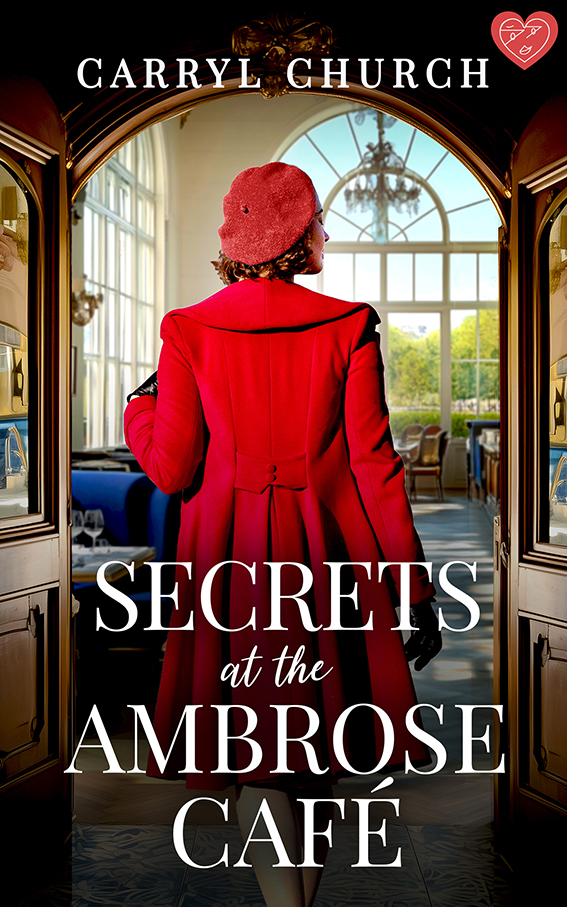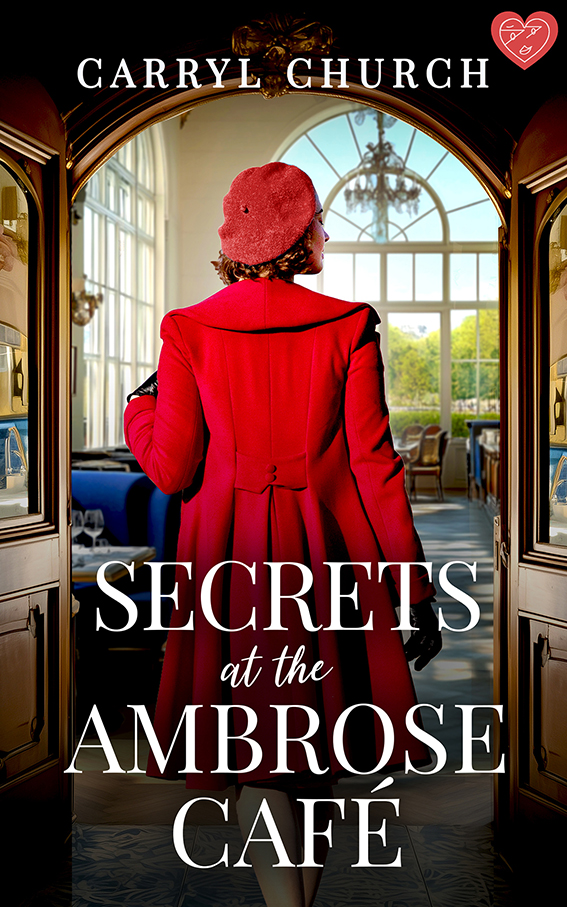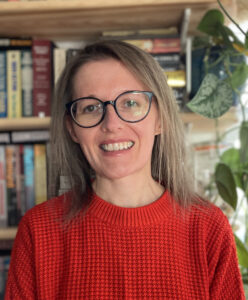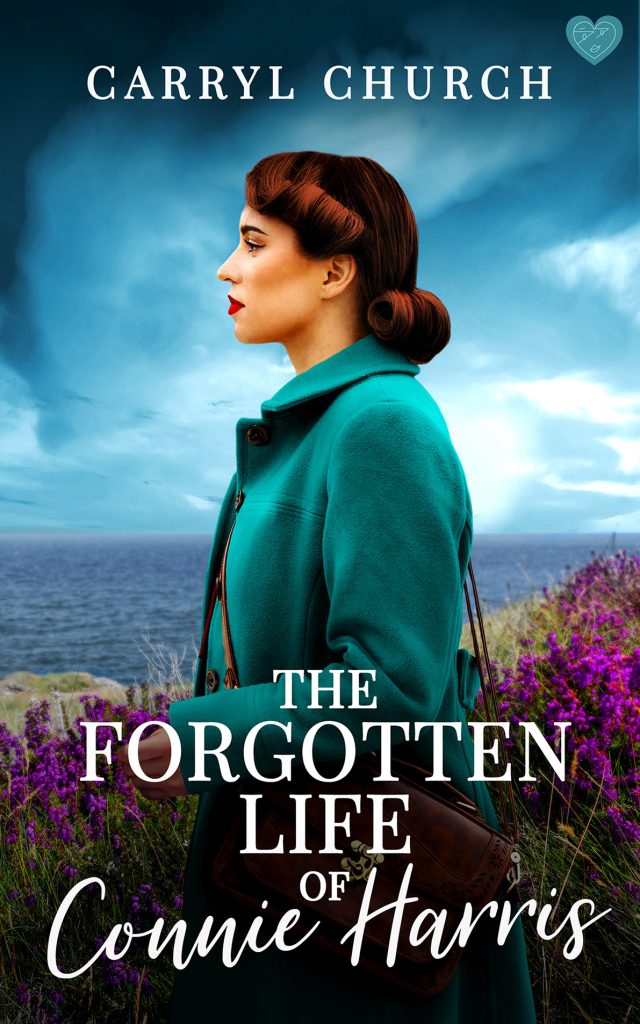I’m delighted to welcome fellow author, former student, and friend, Carryl Church, back to my blog today, to share the #openinglines from her fabulous second novel, Secrets at the Ambrose Café.
Blurb:
Two women. Two different worlds. One secret that could ruin them both.
Exeter, 1925. Della Wilde has set aside her dream of moving to Paris to study at the renowned Le Cordon Bleu, choosing instead to support her family torn apart by war. By day, she works at the prestigious Ambrose Café, serving the city’s elite — she feels utterly invisible. Until a chance encounter with rebellious Alice Winters, the daughter of a powerful MP, upends Della’s world.
Alice is a woman caught between duty and desire. She secretly yearns to be an artist but is expected to marry a respectable suitor and raise a family. Della, with her sharp wit and quiet strength, is unlike anyone she has ever known. She makes Alice feel alive.
So she draws Della into her orbit — first as a muse for her secret art, then as something infinitely more intimate. But in a world where reputations are easily shattered, their growing bond is a danger that threatens not only their futures, but those around them.
As Alice risks scandal and Della faces the consequences of following her heart, they must decide: will they allow others to choose their path, or dare to forge their own?
This historical tale of courage, forbidden love and self-discovery is perfect for fans of Sarah Waters, Cynthia Ellingsen, Fiona Valpy or Rhys Bowen.
Here are the first 500 words…
Exeter, 1925
Della stepped back to assess the birthday cake. The first cake Hastings trusted her to decorate without guidance. Three tiers of sponge encased in fondant icing stood regal on a glass stand. Embossed gold-leaf frescos circled the base, edible pearls tumbled over the layers and the top was crowned with wishes to the birthday girl in swirls of chocolate ganache. Twenty-one silver candles finished the decadent masterpiece.
Mrs Hastings came to her side, flour-dusted hands resting on generous hips. Della felt the weight of the Ambrose’s reputation heavy on her shoulders as her boss studied the cake, searching out imperfections.
Eventually she threw Della a smile. ‘You’ve the steadiest hand, Della Wilde. That lettering is flawless.’
William crashed through the double doors to the kitchen, leaving them swinging back and forth long after his arrival. He weaved his tray aloft and dumped it on the washing trolley. ‘It’s getting a bit rowdy in there.’ He cocked his head at the ballroom beyond the servery doors, where a birthday party was in full swing.
Anthony was next, spinning his empty tray like an acrobat. ‘Della, they’re ready for the cake.’ He stopped to inspect her work. ‘Blimey. It’s beautiful.’ He met her gaze, eyes wide with admiration.
A cheer from the other side of the doors snatched their attention. Anthony lit a match and set the candles ablaze.
‘Ready?’ He moved to take the trolley.
‘I’ll take it.’ William stepped in his path, leaving Anthony little choice but to acquiesce.
Della followed her cake on its journey to the servery doors, hoping it lived up to the occasion. She opened one side — Anthony took the other. As William entered the party, more cheering erupted. It was a rare opportunity to hear guests take pleasure in her work. She lingered to see the clientele in their finery. The birthday girl stood on the top table, adorned in a crimson bias-cut dress twinkling with sequins. Long necklaces of jet beads fell in layers across her taut body. A feather boa trailed her sinewy arms, and a headband sat regally on dark blonde hair cut in the daring Eton crop. A single artfully sculpted curl escaped from behind her ear, which dripped with diamanté earrings. She turned, exposing a smooth, bare back. Della followed the contours of her spine to the base.
Anthony shared in her voyeuristic activity. ‘I’ve never seen the like.’
‘Who is she?’ Della couldn’t drag her gaze from the spectacle. Silk stockings and silver heels pranced among the café’s finest china and cutglass coupes. The birthday girl held one aloft while she threw her head back in laughter, exposing the tight ribbing of her neck. A cigarette smouldered at the end of a silver holder in her free bejewelled hand. A tuxedoed man looked on with proprietorial eyes.
‘Alice Winters,’ Anthony replied.
Della shrugged.
‘You know, the MP Robert Winters. She’s his daughter — and a handful by the looks of things.’ He checked his watch and disappeared to…
***
If you want to find out what happens next, you can buy Secrets at the Ambrose Café from all good retailers, including:
Amazon: https://amzn.eu/d/dIlEnja
Waterstones: https://www.waterstones.com/book/secrets-at-the-ambrose-caf/carryl-church/9781781898857
***
Carryl writes historical fiction with a focus on the 20th Century. Her writing explores love in turbulent times, both romantic and familial. The people we’re given and those we choose for ourselves.
An early fascination with cinema led to a career as a Film and Photography Archivist. Years spent watching archive footage gave her a unique insight into how people lived in the early 20th century now brought vividly to life in her stories.
Originally from the Isle of Wight, Carryl now lives in Devon. The local landscape and locations are an inspiration for her novels. Carryl has a BA in Media and Literature and an MA in Film and Television Archiving. After working in Media Archives for seventeen years, including The Imperial War Museum and The BBC, she now writes full-time in the company of her cat, Ditsy.
Website: https://carrylchurch.co.uk/
Instagram: @CarrylChurch
Facebook: Carryl Church
***
Many thanks for sharing your #openinglines with us today.
Happy reading everyone,
Jenny x










 Bio:
Bio: